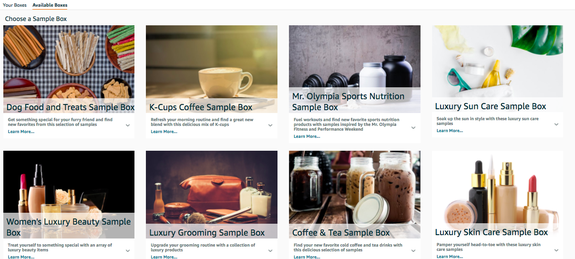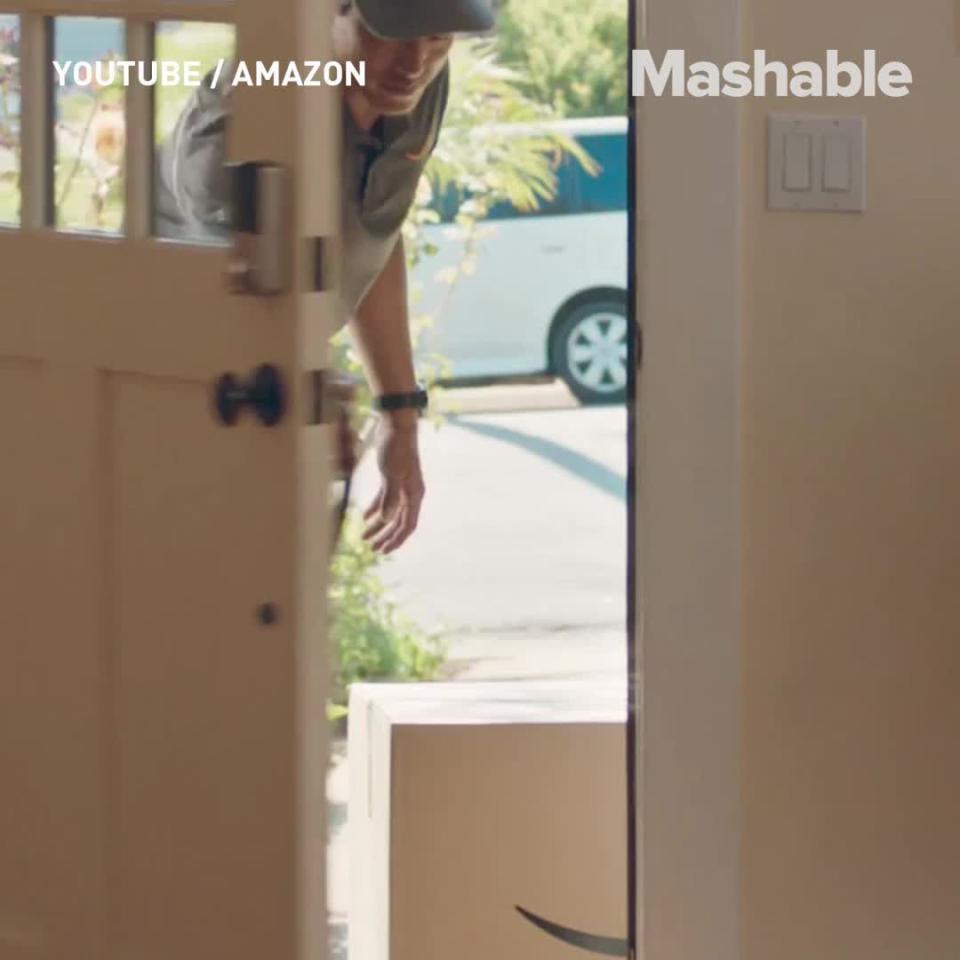Amazon has a service to compete with basically every consumer startup

If a consumer startup exists, there’s a good chance Amazon is trying to kill it.
Headlines about the famously aggressive online shopping giant bulldozing through retail categories are nothing new, of course; it seems like every other day brings a new breathless news cycle about the threat it poses to a new industry.
Sometimes lost in the mix, though, are the various ways in which it’s undermining even smaller niche startup markets from housecleaning services to subscription boxes to restaurant delivery.
Amazon’s tendrils are growing into nearly every part of the e-commerce tech world. The company is so big that smaller efforts that may seem like an afterthought compared to its larger ambitions have the power to shake up sectors.
That’s in part because these areas tend to be money-burning enterprises that take gobs of venture capital to launch into steady businesses. Yet while startups fight to stay above water, Amazon’s resources mean it has no such concerns.
Here are some of the startups with which Amazon is competing in some form or another:
On-demand cleaning service Handy
Amazon is currently hiring dozens of housekeepers for what appears to be a new home-cleaning service in the works. Amazon says these employees “will be traveling and working in customers’ homes ensuring they return to a sparkling clean environment.”
That proposition could pose a problem for Handy, a startup that also helps people hire on-demand cleaning help.
Handy has faced legal battles and worker disputes over its gig-economy classification of cleaners as independent contractors. The controversial designation frees the company from paying out benefits and wages that labor laws might otherwise mandate.
amazon is great bc i went to buy shampoo & ended up buying my mom a house cleaning session for christmas
— kassandra (@kassreynolds) November 14, 2017
Amazon’s housekeepers, on the other hand, are promised formal employment with the company along with health insurance and stock options. Such terms could not only attract workers away from Handy but also guarantee a level of service without the sort of headline-grabbing bad experiences that have hurt Handy’s reputation.
Amazon could also conceivably bolster the service with various of its other operations. Assuming that customers one day feel comfortable enough to adopt its new Amazon Key home supervision system, it could use those cameras to protect against theft.
Smart lock startups
Amazon turned heads last month when it announced Amazon Key, a service that would let delivery-people enter customer homes without them there through an advanced lock and camera system.
But the online shopping giant wasn’t the first to offer this idea. The month before the announcement, Walmart penned a deal with smart-lock startup August Home to offer the same sort of scheme.
The difference is that Amazon is instead providing its own hardware and that of approved third parties as part of the installation kit.
Amazon’s customer base is so strong that, provided people overcome their uneasiness with strangers in their house, its services could help it own the market on smart locks in the process of rolling out Amazon Key.
While tech-integrated door security is useful for a number of other reasons beyond grocery delivery, Amazon could sell people on it through the program, leaving less demand for the rest of the industry.
Grubhub
Amazon sent Grubhub’s stock plummeting earlier in the fall when it announced its own restaurant delivery business in several major cities.
Grubhub has maintained a dominant spot in the restaurant ordering and delivery market by purchasing its closest rivals in the space. While the company is still integrated into Amazon’s Alexa digital assistant, Amazon’s own service could eventually get an edge through default settings in the system.
Amazon’s not running its restaurant service all by itself, however. The operation is powered by ordering tech startup Olo and benefits from that company’s long list of clients.
Subscription box services

Image: amazon
Amazon has quietly rolled out a program called Prime Samples that offers assortment packs of everything from dog treats to toiletries to coffee and tea.
While the offering is flying under the radar for now, it could one day challenge the recent proliferation of e-commerce startups built around the idea of regular curated collections of products: Birchbox, Harry’s razors, and hundreds of others.
Unlike those companies, Prime Samples aren’t explicitly offered in regular recurring shipments, though one could easily set orders to repeat through Amazon’s purchasing options.
Blue Apron
Amazon helped spoil Blue Apron's stock market debut this summer after its blockbuster Whole Foods deal spooked investors.
But it didn't stop there. Not long after the DIY meal service hit the trading floor, Amazon launched its own meal kits to compete head on with the startup.
Amazon's version of Blue Apron's service launched with little fanfare and it's not clear how much it's grown in the three months since. But the mere fact that Amazon is interested in the market has been enough to damage the startup's stock, along with the other more fundamental flaws in its business plan.
WATCH: Amazon Key offers package delivery, inside your home

Every editorial product is independently selected by Mashable journalists. If you buy something featured, we may earn an affiliate commission which helps support our journalism.

